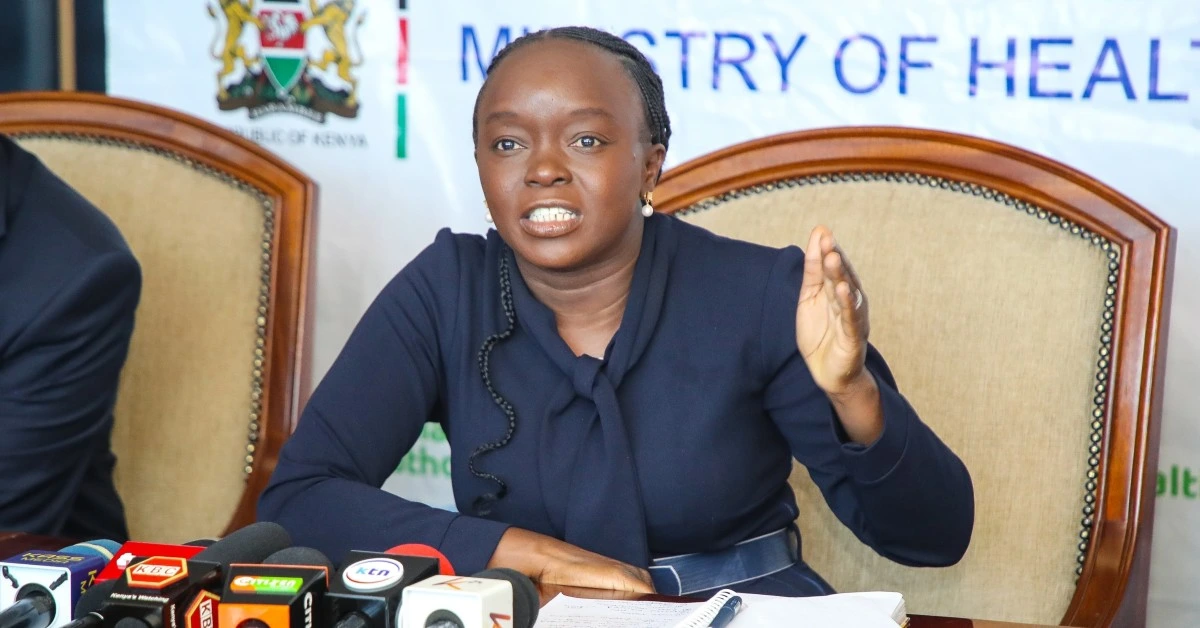
KENYA – Kenya’s government is making significant progress in strengthening Universal Health Coverage (UHC) through key reforms under the Taifa Care program.
These efforts include structural changes, collaborations with international health technology firms, and improvements in healthcare financing to ensure all Kenyans can access quality and affordable healthcare services.
Taifa Care: A new approach to UHC
Taifa Care is Kenya’s new framework for achieving UHC, replacing the previous system. It aims to make healthcare accessible and efficient through four key funds: the Social Health Insurance Fund (SHIF), the Primary Healthcare Fund, the Emergency, Chronic, and Critical Illness Fund, and the Digital Health Platform.
These reforms seek to ensure every citizen can receive essential health services without financial hardship.
Health Cabinet Secretary Dr. Deborah Mlongo Barasa emphasized that Taifa Care would revolutionize Kenya’s healthcare system.
“We are implementing reforms that will change how healthcare is delivered and financed,” she stated.
The program is designed to improve service delivery in public hospitals, expand insurance coverage, and introduce digital tools to streamline healthcare management.
Strategic partnerships with Siemens Healthineers and GE Healthcare
To enhance healthcare services, the government has partnered with global medical technology leaders, Siemens Healthineers and GE Healthcare.
These collaborations aim to improve precision care, upgrade medical infrastructure, and train healthcare professionals.
Siemens Healthineers collaboration
The Ministry of Health has signed an agreement with Siemens Healthineers to implement advanced diagnostic and imaging solutions in Kenyan hospitals.
This partnership will equip medical facilities with modern tools for detecting and treating diseases more accurately.
The collaboration also includes training programs for healthcare workers to enhance their expertise in using these technologies.
CS Dr. Barasa highlighted the importance of this partnership, stating, “We are committed to improving healthcare infrastructure and ensuring that every Kenyan benefits from modern medical technology.”
GE Healthcare engagement
Similarly, the State Department for Medical Services is working with GE Healthcare to advance precision medicine in Kenya.
This partnership focuses on equipping hospitals with state-of-the-art diagnostic tools, particularly in oncology, cardiology, and maternal healthcare.
The initiative aims to improve early disease detection, which is critical for effective treatment. “Through precision medicine, we can enhance diagnosis and treatment, reducing the burden of non-communicable diseases,” said a ministry official.
Funding and digital transformation
The Taifa Care reforms are backed by structured healthcare financing, ensuring sustainability. The Social Health Insurance Fund (SHIF) will cover hospital bills for registered members, while the Primary Healthcare Fund will support essential health services at community levels.
Additionally, the Emergency, Chronic, and Critical Illness Fund will assist patients needing urgent or long-term medical care.
This is crucial in addressing diseases such as cancer, diabetes, and heart conditions, which require expensive treatments.
The introduction of the Digital Health Platform will also transform healthcare management by digitizing patient records, improving efficiency in service delivery, and reducing fraud.
“Technology will play a key role in making healthcare services more accessible and transparent,” noted a senior health official.
Challenges and the way forward
While Taifa Care is a major step toward UHC, challenges remain. Healthcare facilities still face shortages of medical staff and equipment, and rural areas struggle with limited access to specialized care.
However, the government is addressing these issues through increased funding and international partnerships.
The success of Taifa Care depends on effective implementation and public participation. The government is encouraging citizens to register under SHIF to ensure universal access to healthcare.
XRP HEALTHCARE L.L.C | License Number: 2312867.01 | Dubai | © Copyright 2025 | All Rights Reserved